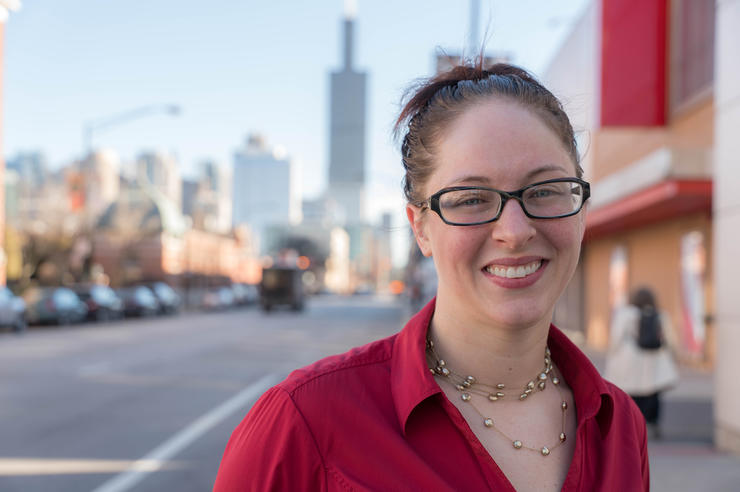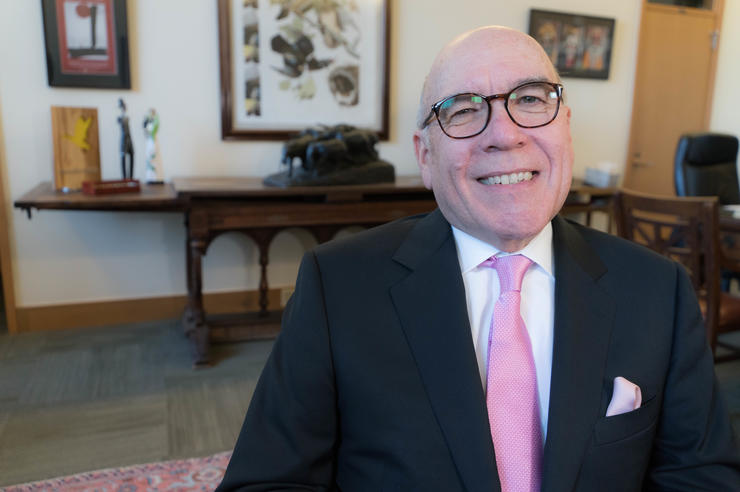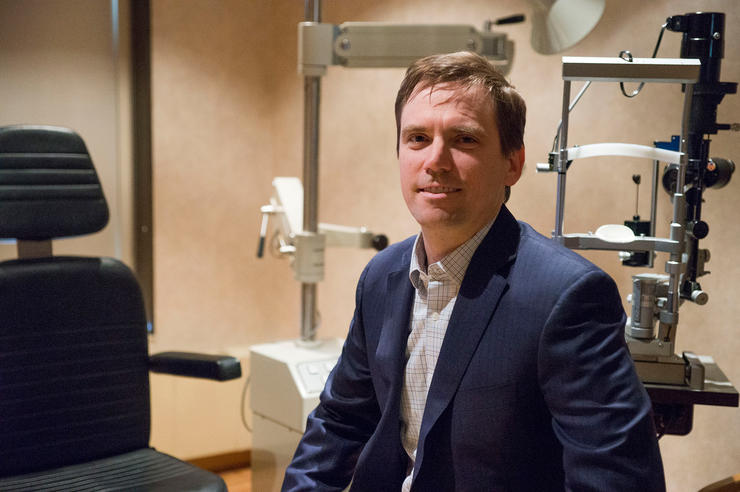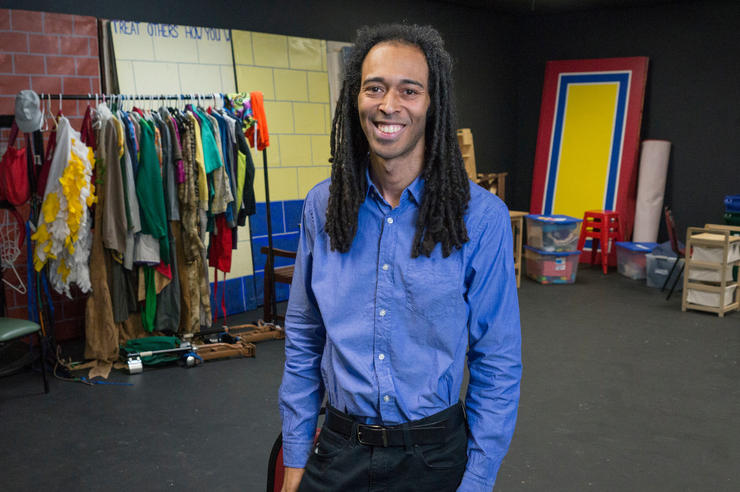UI grad promotes the power of play
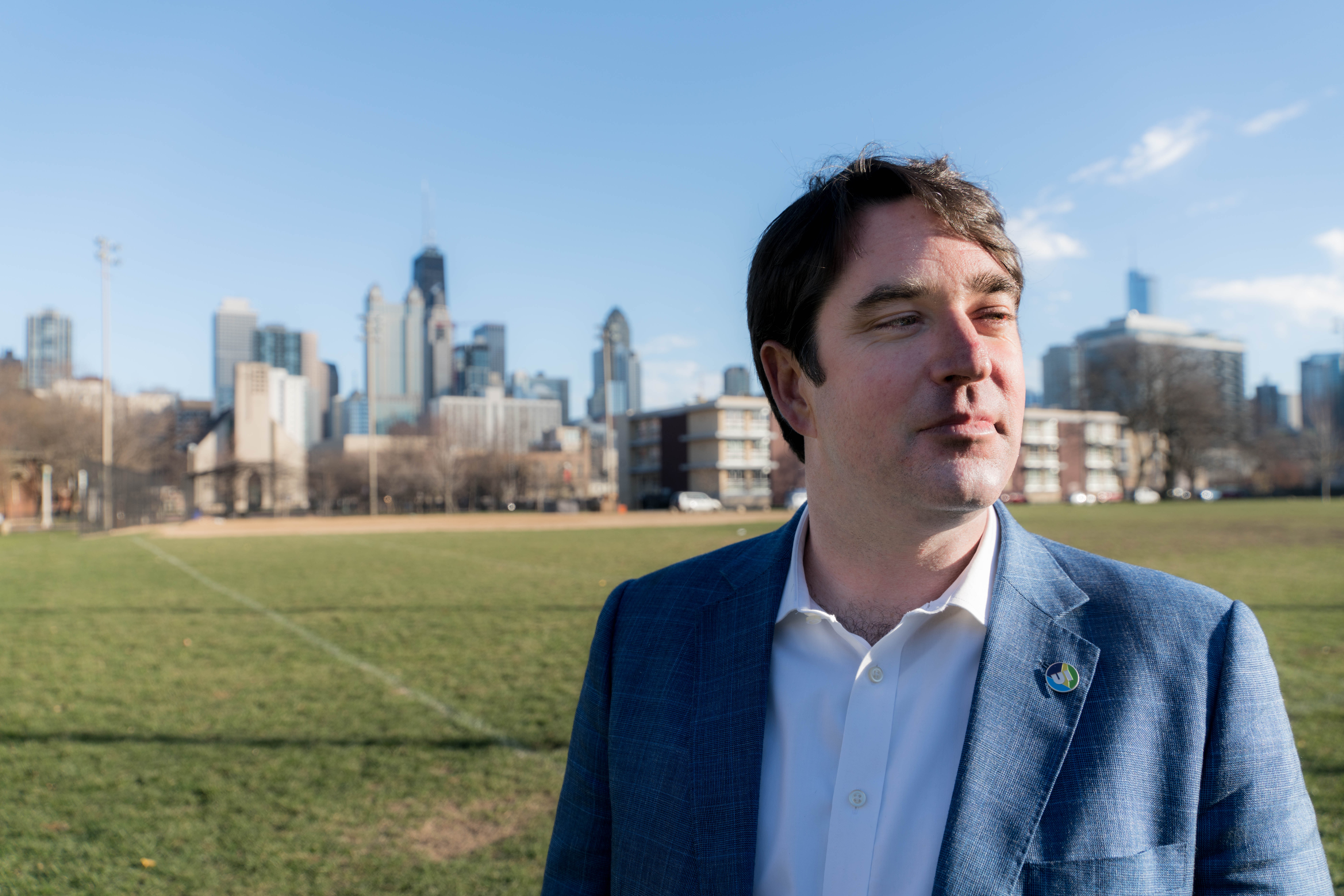
Chicago native Jim Dower had planned to go to law school like many generations of Dowers had done before him. But something transformative happened when the University of Iowa graduate returned home to study for the LSAT: a game of soccer.
Dower, who earned a political science degree from the UI in 2002, had taken a job substitute teaching elementary students at the now-closed Byrd Academy in Chicago’s Cabrini–Green neighborhood. Friend and fellow UI graduate Dan Isherwood did the same. Both also had gigs coaching soccer in a more affluent suburban neighborhood.
It wasn’t long before the two recognized a disparity in the opportunities students had to participate in youth sports. Chicago Public Schools didn’t provide sport programming until fifth grade, and club sports were often cost prohibitive for many low-income families in Cabrini–Green, so Dower and Isherwood decided to do something about it. What happened changed the course of Dower’s career—and, potentially, those of many Chicago kids.
In 2003, the two started Urban Initiatives, an extracurricular soccer club for their students at Byrd Academy, and they quickly found that not only did the participants do better academically, but also the participants’ families enjoyed supporting the teams and cheering them on. What started with 12 kids kicking a ball around in Cabrini–Green’s Seward Park has ballooned into an organization with four programs serving some 17,000 students in 57 schools across Chicago.
Urban Initiatives, says Dower, “uses sport and the power of play to help cultivate and support the next generation of Chicago leaders and to empower them to become agents of change for our city.” The programming is evidence-based and outcomes-driven, he adds.
“Sport had been a very important and integral part of my youth development in Chicago, but when I began teaching, I noticed that many schoolkids didn’t have the same opportunities I had,” Dower says. “That’s important because young people start identifying their ‘in’ groups and ‘out’ groups between the ages of 6 and 10. Some of those groups are really positive, and some aren’t so positive. We wanted to give our students a place to come together and be positive, and a place where families could come together and celebrate their child’s success. That’s where the heart of our soccer program still lies today.”
Urban Initiatives has become more than kids playing a game of soccer. A continuum of programming facilitated by 50 full-time and 125 part-time employees allows participants to progress from player to captain to paid staff member at the nonprofit’s summer camp. Some 83 percent of participants come from low-income families, and more than 90 percent represent minority groups. The nonprofit gives them the opportunity to pick up leadership skills, develop healthy exercise and social habits, and get job experience.

Learn more about Urban Initiatives, founded by two University of Iowa graduates, at www.urbaninitiatives.org.
“Sport doesn’t see the side of the tracks. Sport doesn’t see what your parents did for a living. And that’s really important,” Dower says. “I think we can do a much better job of using sport as a way to build and unite communities. When you talk to executives and other people successful in life, you find that a lot of them will reflect on their experience in sport and play—how it helped them to think about what success is like, but more importantly how to process defeat. In neighborhoods that don’t see a lot of success—simply due to lack of resources—sport is a space where those students can practice success and failure. Unfortunately, it has become a place of privilege, and our team works hard every day to increase access to students across the city.”
Teamwork and community were ever-present values during Dower’s time at the University of Iowa, and he says they continue to guide his work as executive director of Urban Initiatives. (Isherwood has since left the organization to coach soccer full time.)
“My experience at Iowa was very much about community, about having people who you can study with, who can support you, who can encourage you, and who can tell you the truth when you need to hear it. I was surrounded by great people. That’s the environment we’re trying to provide with Urban Initiatives,” he says. “When I started working in Cabrini-Green, which was often framed as one of the worst neighborhoods in Chicago in the ’80s and ’90s, I saw a lot of really beautiful, powerful, and supportive people in the schools and in the neighborhood, and I think that our program really gave those folks an opportunity to come together and be positive.”
While he doesn’t get to spend nearly as much time now as “Coach D” on the soccer pitch with kids, Dower has enjoyed growing the organization, working with donors and partners, and increasing opportunities for students across the city to connect with each other. He wants to continue to raise the visibility of sport as a means of effecting change.
“I think people who have access to and grow up with sport in their lives have a greater sense of success, failure, and accomplishment. Our first cohort of students is in high school right now. We fully expect to stay with those students into college, their careers, and beyond,” he says. “I don’t believe you become an alumnus of an organization until you start donating to the organization, whether with your time, talent, or treasure. That’s where we want our students to go. We want them to build friendships that will last a lifetime, find universities like the University of Iowa where they’ll thrive, and find careers they are passionate about.”
